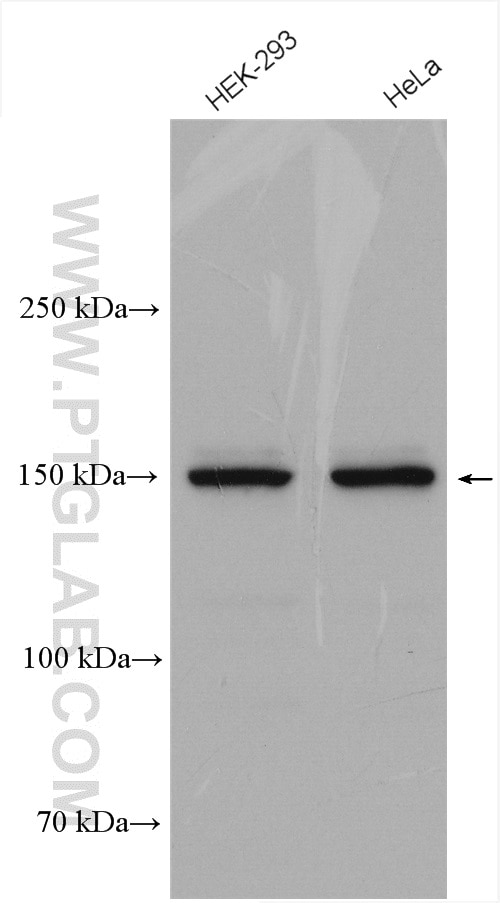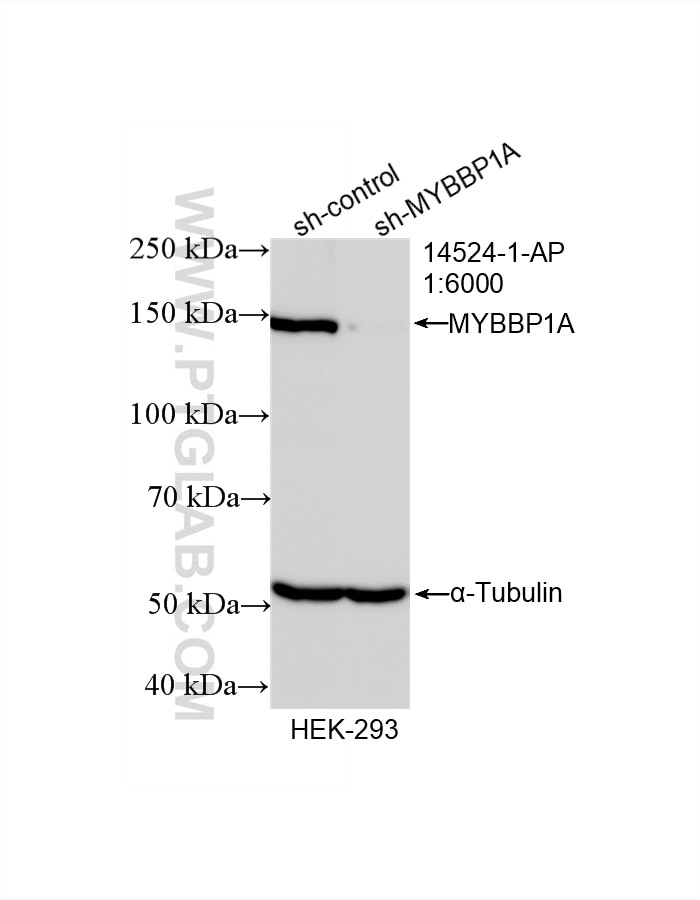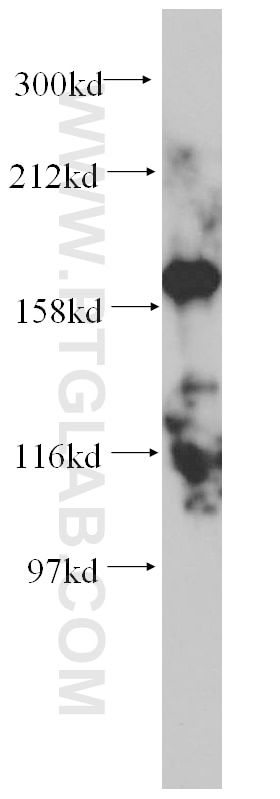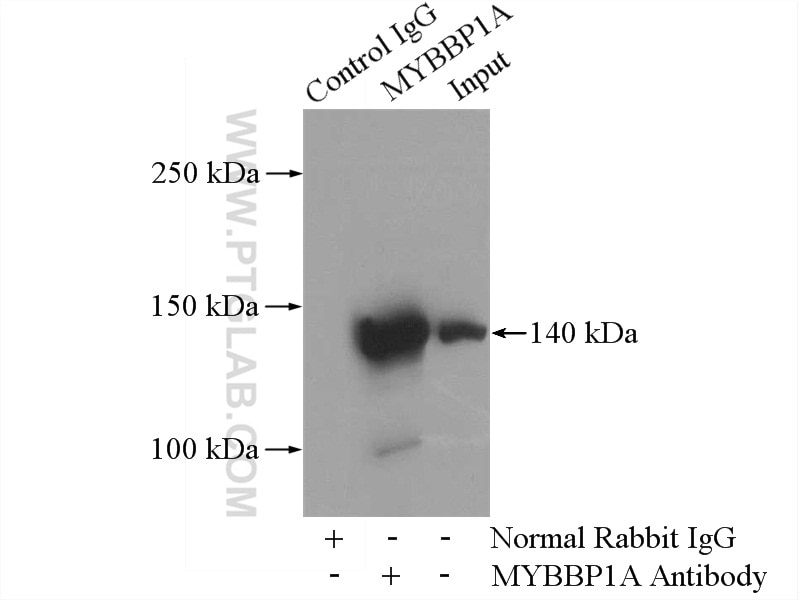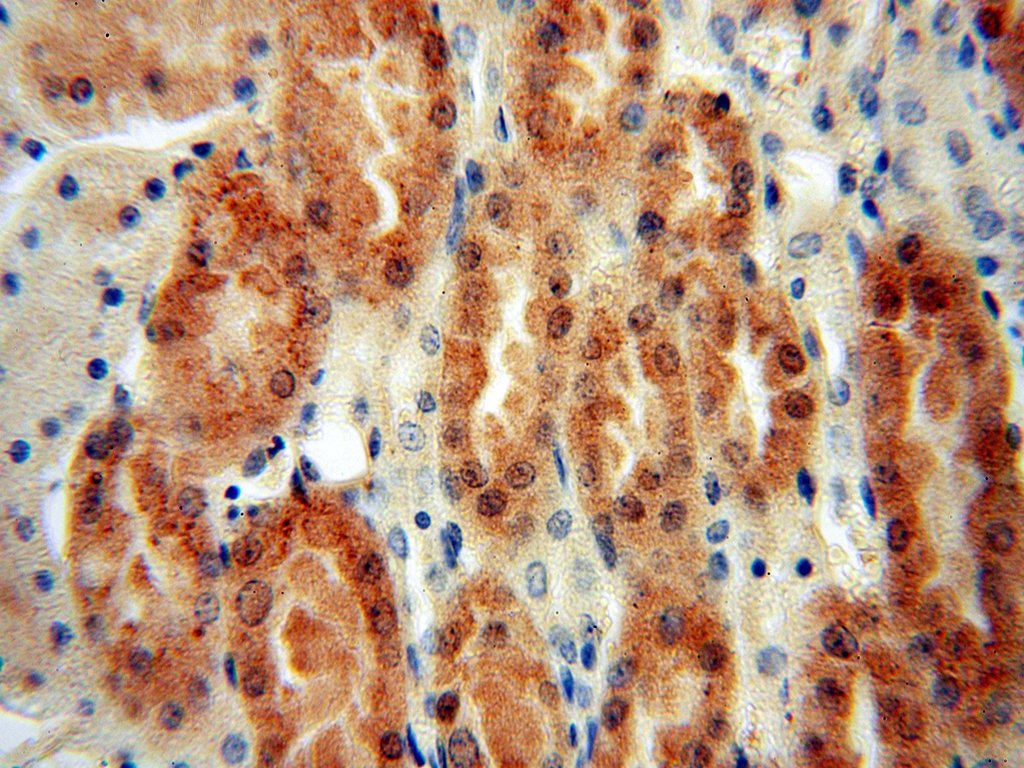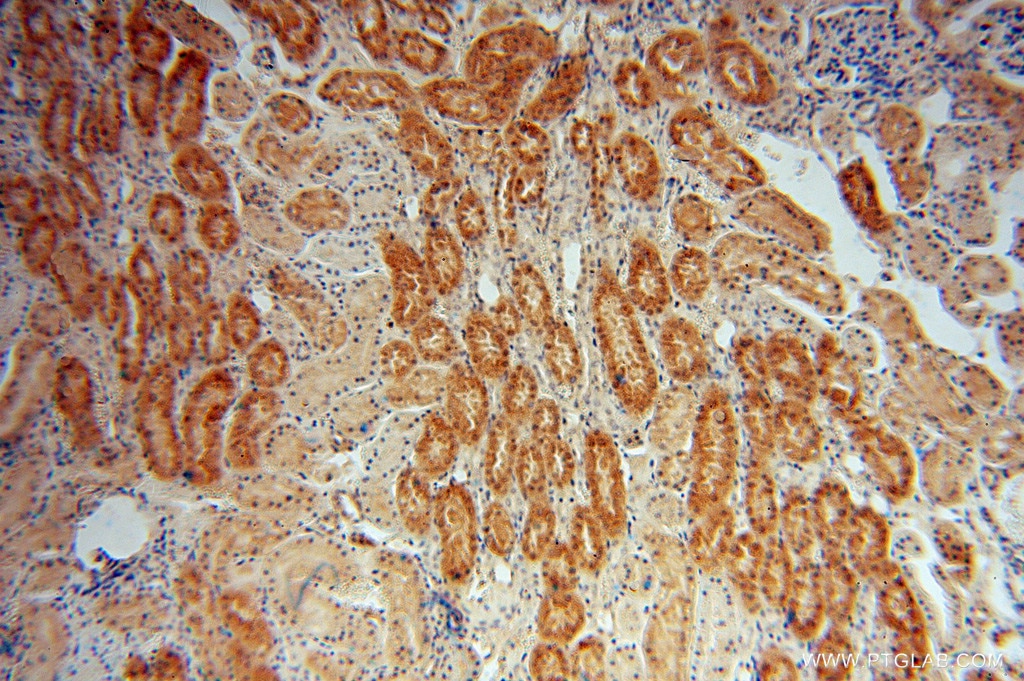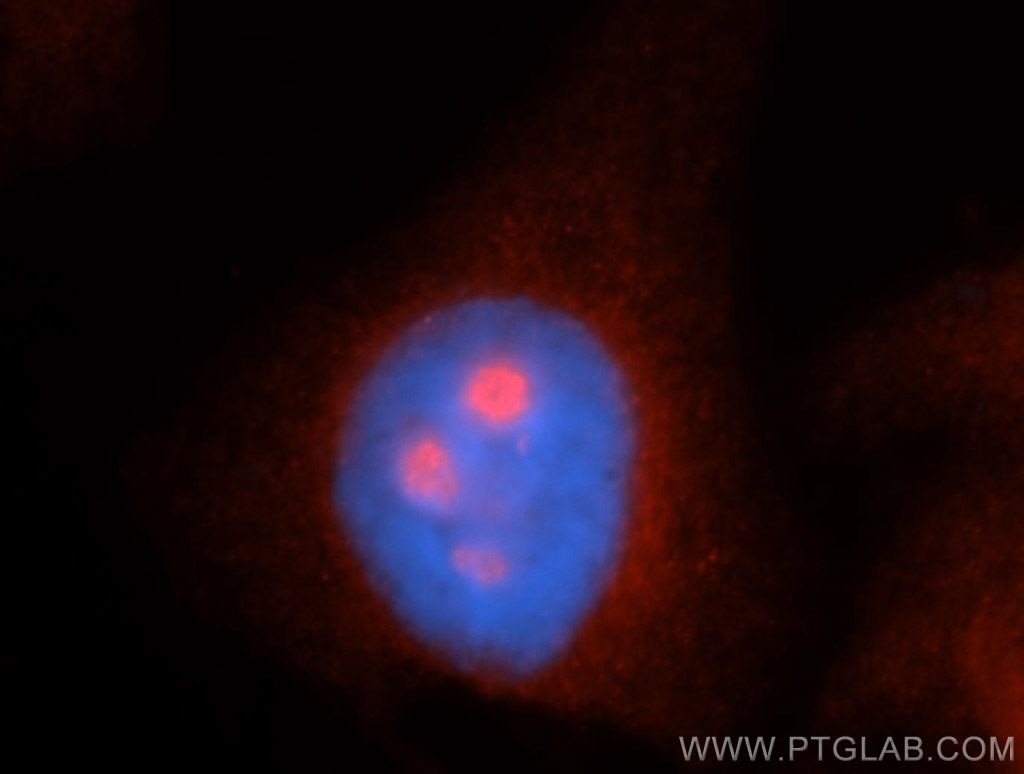- Featured Product
- KD/KO Validated
MYBBP1A Polyklonaler Antikörper
MYBBP1A Polyklonal Antikörper für WB, IHC, IF/ICC, IP, ELISA
Wirt / Isotyp
Kaninchen / IgG
Getestete Reaktivität
human und mehr (1)
Anwendung
WB, IHC, IF/ICC, IP, RIP, ELISA
Konjugation
Unkonjugiert
Kat-Nr. : 14524-1-AP
Synonyme
Geprüfte Anwendungen
| Erfolgreiche Detektion in WB | HeLa-Zellen, HEK-293-Zellen |
| Erfolgreiche IP | HEK-293-Zellen |
| Erfolgreiche Detektion in IHC | humanes Nierengewebe Hinweis: Antigendemaskierung mit TE-Puffer pH 9,0 empfohlen. (*) Wahlweise kann die Antigendemaskierung auch mit Citratpuffer pH 6,0 erfolgen. |
| Erfolgreiche Detektion in IF/ICC | HepG2-Zellen |
Empfohlene Verdünnung
| Anwendung | Verdünnung |
|---|---|
| Western Blot (WB) | WB : 1:2000-1:10000 |
| Immunpräzipitation (IP) | IP : 0.5-4.0 ug for 1.0-3.0 mg of total protein lysate |
| Immunhistochemie (IHC) | IHC : 1:20-1:200 |
| Immunfluoreszenz (IF)/ICC | IF/ICC : 1:20-1:200 |
| It is recommended that this reagent should be titrated in each testing system to obtain optimal results. | |
| Sample-dependent, check data in validation data gallery | |
Veröffentlichte Anwendungen
| KD/KO | See 1 publications below |
| WB | See 7 publications below |
| IHC | See 1 publications below |
| IF | See 1 publications below |
| RIP | See 1 publications below |
Produktinformation
14524-1-AP bindet in WB, IHC, IF/ICC, IP, RIP, ELISA MYBBP1A und zeigt Reaktivität mit human
| Getestete Reaktivität | human |
| In Publikationen genannte Reaktivität | human, Maus |
| Wirt / Isotyp | Kaninchen / IgG |
| Klonalität | Polyklonal |
| Typ | Antikörper |
| Immunogen | MYBBP1A fusion protein Ag6008 |
| Vollständiger Name | MYB binding protein (P160) 1a |
| Berechnetes Molekulargewicht | 149 kDa |
| Beobachtetes Molekulargewicht | 150-160 kDa |
| GenBank-Zugangsnummer | BC050546 |
| Gene symbol | MYBBP1A |
| Gene ID (NCBI) | 10514 |
| Konjugation | Unkonjugiert |
| Form | Liquid |
| Reinigungsmethode | Antigen-Affinitätsreinigung |
| Lagerungspuffer | PBS with 0.02% sodium azide and 50% glycerol |
| Lagerungsbedingungen | Bei -20°C lagern. Nach dem Versand ein Jahr lang stabil Aliquotieren ist bei -20oC Lagerung nicht notwendig. 20ul Größen enthalten 0,1% BSA. |
Hintergrundinformationen
The protooncogene MYB is predominantly expressed in immature hemopoietic cells where it has an essential role in hemopoietic cell proliferation and differentiation. Oncogenically activated forms of MYB is generally N- and/or C-terminal truncations of the normal MYB protein. Removal of the C terminus of MYB disrupts or deletes a region termed the negative regulatory domain (NRD), resulting in an increase in DNA binding, transactivation, and transformation by MYB. One feature of the NRD is a leucine zipper-like motif [PMID: 8302594]. Murine Myb-binding protein-1a (MYBBP1A), originally called P160, was identified by its ability to interact specifically with Myb via this leucine zipper-like motif. MYBBP1A modulates MYB activity upon binding to the MYB NRD [PMID: 10644447, 9447996].
Protokolle
| PRODUKTSPEZIFISCHE PROTOKOLLE | |
|---|---|
| WB protocol for MYBBP1A antibody 14524-1-AP | Protokoll herunterladen |
| IHC protocol for MYBBP1A antibody 14524-1-AP | Protokoll herunterladenl |
| IF protocol for MYBBP1A antibody 14524-1-AP | Protokoll herunterladen |
| IP protocol for MYBBP1A antibody 14524-1-AP | Protokoll herunterladen |
| STANDARD-PROTOKOLLE | |
|---|---|
| Klicken Sie hier, um unsere Standardprotokolle anzuzeigen |
Publikationen
| Species | Application | Title |
|---|---|---|
Cell Rep A fetal tumor suppressor axis abrogates MLL-fusion-driven acute myeloid leukemia | ||
Inflammation USP30-AS1 Suppresses Colon Cancer Cell Inflammatory Response Through NF-κB/MYBBP1A Signaling | ||
Clin Genet Non-immune hydrops fetalis is associated with bi-allelic pathogenic variants in the MYB Binding Protein 1a (MYBBP1A) gene | ||
Sci Adv In vivo protein turnover rates in varying oxygen tensions nominate MYBBP1A as a mediator of the hyperoxia response | ||
Microbiol Spectr Nuclear reorganization by NPM1-mediated phase separation triggered by adenovirus core protein VII |
